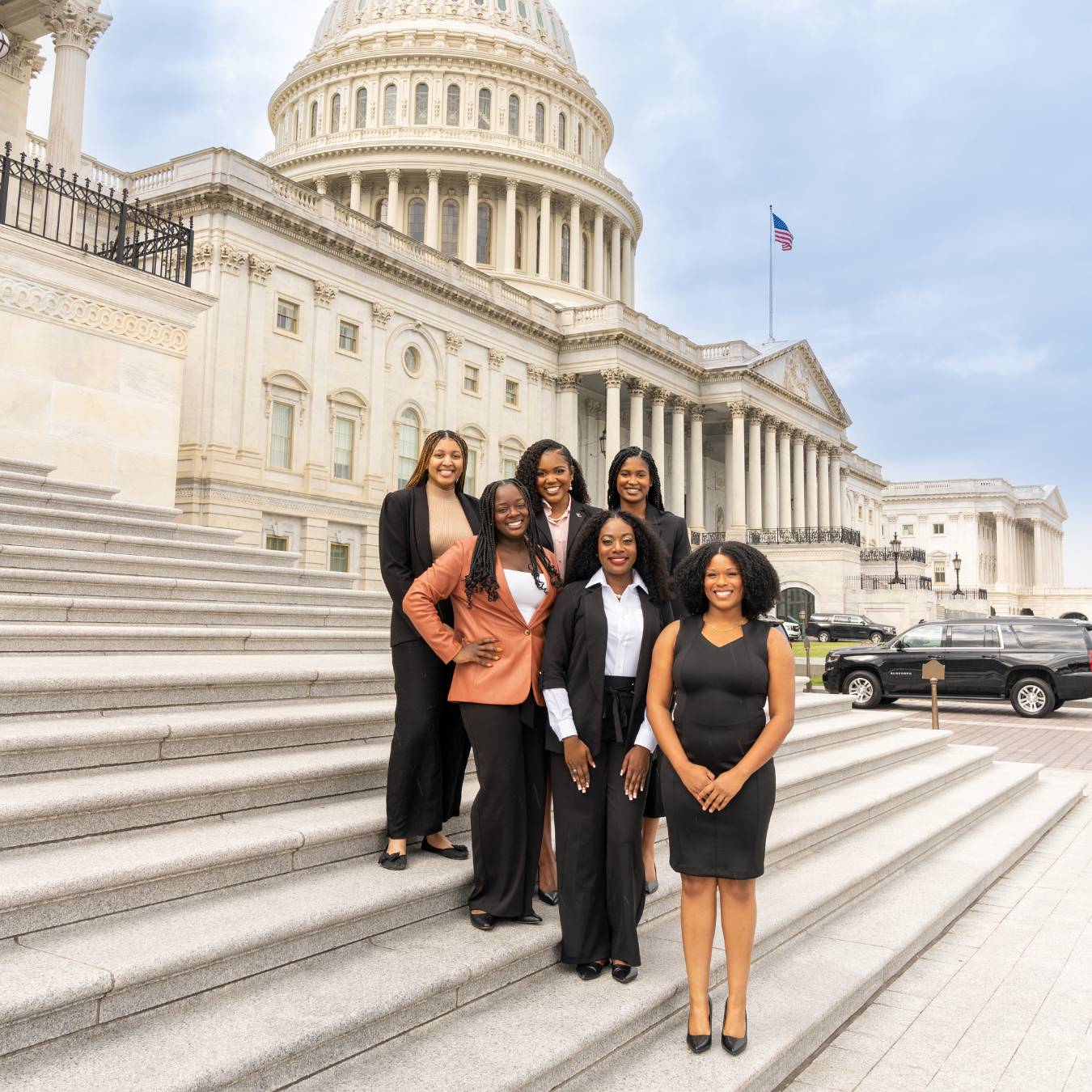Exploring the Nexus of Property Taxes, Housing Disparities and Educational Access for Black and Brown Youth in Major U.S. Cities
By Samantha Wilkerson, M.Ed., John R. Lewis Social Justice Fellow
This Capstone addresses housing disparities as a contributor to educational inequity and demands urgent attention and comprehensive solutions from the federal government to simultaneously tackle both housing and education disparities.
From Slavery to Sovereignty: The Economic Importance of the Justice for Black Farmers Act
By Danielle Browne, John R. Lewis Social Justice Fellow
This capstone illuminates the rich history of Black ingenuity in American agriculture, emphasizing significant contributions made by enslaved Africans and their descendants.
Healing Hands: Amplifying Black Healthcare Provider’s Impact on America’s Maternal Mortality Crisis
By Brelynn Hunt, M.H.S, M.Phys., John R. Lewis Social Justice Fellow
Amidst the dire landscape of maternal health disparities and the profound challenges within maternal healthcare for Black women in America, there is a need for critical exploration beyond the conventional discussions of mortality and morbidity during childbirth.
Fields of Opportunity: Exploring the Intersection of Urban Farming and AI Solutions for Food Insecurities in Black Communities
By Leyana Casey, MPH, John R Lewis Social Justice Fellow
This capstone, serving as a comprehensive literature review, uses previous literature to navigate the landscape of food insecurity in Black communities and explore the potential benefits of urban farming and AI-driven solutions for these communities.
Environmental Victimization: Lived Experiences of Black Residents Residing Near Oil/Gas and Petrochemical Refineries
By Taylor D. Robinson, Ph.D., John R. Lewis Social Justice Fellow
Studies about environmental crime have grown exponentially within the past 20 years; however, studies focusing on the impacts of crime as it relates to victimization receive little attention within this context.
The Forgotten People: Honoring the Voices of Black Rural Americans
By Ja’Lia Taylor, Ph.D., John R. Lewis Social Justice Fellow
This capstone project examines Black Rural Americans’ historical significance and ongoing struggles, emphasizing their past and present challenges. Its goal is to elevate the priority of Black Rural Americans in societal and legislative considerations, ensuring that their voices are heard, and their experiences are acknowledged in shaping future policies.
Antimicrobial Resistance in Black America: Unveiling a Looming Public Health Crisis
By Oluwatosin Oyadiran, John R. Lewis Social Justice Fellow
This Capstone explores the development of antimicrobial agents, the emergence and dynamics of antimicrobial resistance, the intersections of health disparities and infectious diseases, consequences of AMR in Black America, current initiatives, and potential solutions to this critical issue.
A Net with Gapping Holes: Unemployment Insurance and Racial Inequality
By Malik Neal, NREI John Lewis Social Justice Fellow
Without federal action, the unemployment insurance system will continue to disadvantage Black Americans, who stand to benefit the most from such relief. In the end, reforming unemployment insurance is a racial justice issue.
Road to 2030: Federal Legislative Solutions to Social Equity in a Booming Cannabis Industry
By Tatyana Hopkins, John R. Lewis Social Justice Fellow
With the legal cannabis market in the U.S. slated to become a $72 billion market by 2030 across the legal states, the federal government must emphasize, model, and encourage states, to engage in effective social equity programming. It must also approach prospective federal cannabis-focused policy through the lens of social equity.
Black Foster Youth Matter and So Do Their Black Families: A Resource Guide to Improving Outcome for Black Youth in Foster Care
By Tashia Roberson-Wing, John R. Lewis Social Justice Fellow
This capstone serves as a resource guide regarding Black youth within the foster care system. It explores the child welfare system, how historic federal child welfare legislation impacts Black families, and trends in outcomes for Black youth in foster care.

